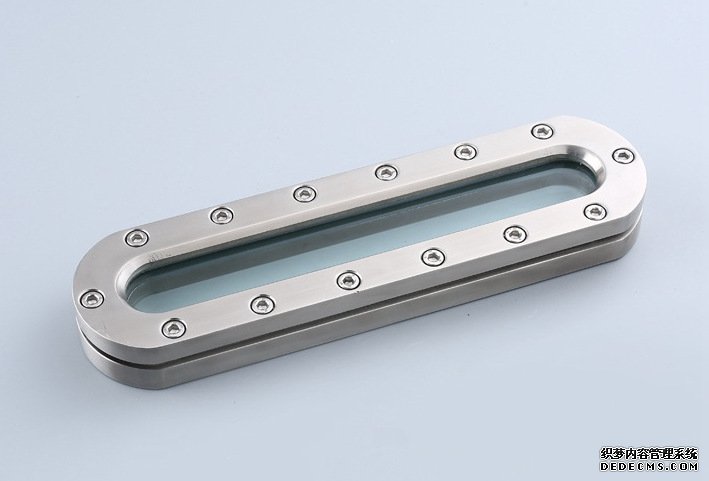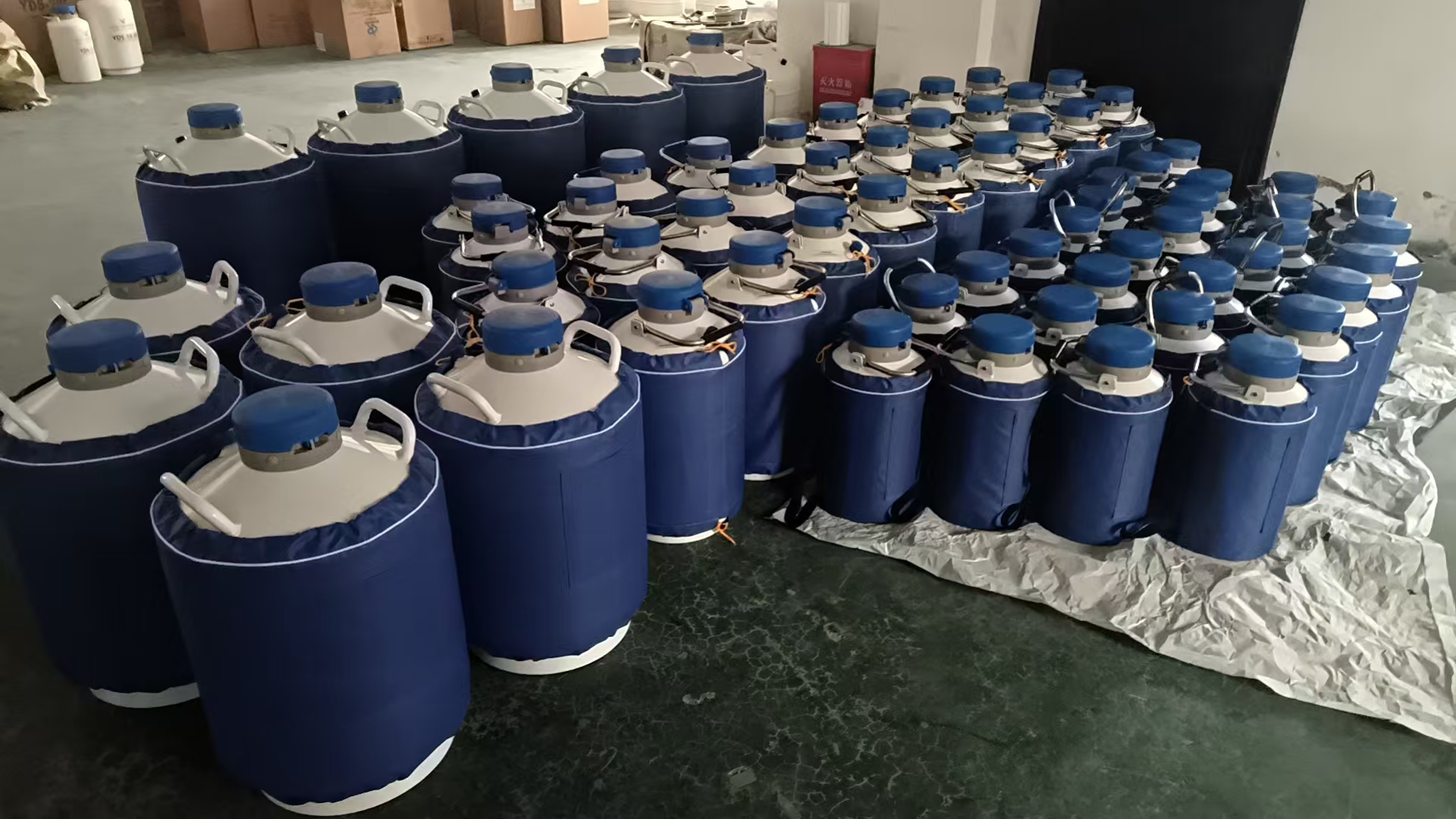Competition of liquid nitrogen tank materials: Which is better, aluminum alloy or stainless steel?
Editor:adminClick:
Time:2025-03-24 14:01
Competition of liquid nitrogen tank materials: Which is better, aluminum alloy or stainless steel?
As a key equipment for storing liquid nitrogen and low-temperature samples, the material selection of liquid nitrogen tanks directly affects their performance and service life. At present, the commonly used materials for liquid nitrogen tanks in the market are aluminum alloy and stainless steel, each with its own advantages and disadvantages, suitable for different scenarios.
1. Aluminum alloy liquid nitrogen tank
advantage:
Lightweight: Aluminum alloy has low density and is lighter than stainless steel liquid nitrogen tanks, making it easy to carry and transport. Especially suitable for scenarios that require frequent movement, such as laboratory sample transportation, outdoor scientific research, etc.
Good thermal conductivity: Aluminum alloy has excellent thermal conductivity, which can quickly transfer the cooling capacity of liquid nitrogen to the sample and improve cooling efficiency.
Relatively cheap price: Aluminum alloy materials have lower costs, so the price of aluminum alloy liquid nitrogen tanks is usually more affordable than stainless steel liquid nitrogen tanks.
Disadvantages:
Low strength: Aluminum alloy has lower strength than stainless steel and is more prone to deformation or damage when subjected to impact or pressure.
Poor corrosion resistance: Aluminum alloys are prone to corrosion, especially in humid or acidic environments, and require more attention to maintenance.
Applicable scenarios: scenarios that require frequent movement, are sensitive to weight, and have limited budget, such as laboratory sample transportation, outdoor scientific research, small biological sample banks, etc.
2. Stainless steel liquid nitrogen tank
advantage:
High strength: Stainless steel has high strength, impact and pressure resistance, is more sturdy and durable, and has a longer service life.
Strong corrosion resistance: Stainless steel has good corrosion resistance and can resist the erosion of harsh environments such as moisture, acid and alkali, with low maintenance costs.
Beautiful appearance: The stainless steel surface is smooth, easy to clean, and has a more beautiful and elegant appearance.
Disadvantages:
Weight: High density stainless steel, heavy liquid nitrogen tank, inconvenient to move and transport.
Poor thermal conductivity: The thermal conductivity of stainless steel is not as good as that of aluminum alloy, and the cooling efficiency is relatively low.
High price: The cost of stainless steel materials is relatively high, so the price of stainless steel liquid nitrogen tanks is usually higher than that of aluminum alloy liquid nitrogen tanks.
Applicable scenarios: scenarios that require long-term storage, high security requirements, and complex environments, such as large biological sample banks, hospitals, blood stations, etc.
3. Summary
Aluminum alloy and stainless steel liquid nitrogen tanks each have their own advantages and disadvantages, and users should choose the appropriate material according to their own needs. If frequent movement, weight sensitivity, and limited budget are required, aluminum alloy liquid nitrogen tanks can be chosen; If long-term storage, high safety requirements, and complex environments are required, stainless steel liquid nitrogen tanks can be chosen.
Keywords:
Relevant Information
- Liquid nitrogen tank operation training: an advanced guide from novice to exper
- Liquid Nitrogen Tank Maintenance Guide
- Liquid nitrogen tank transportation plan: safe and efficient, ensuring the safe
- Hot sale thawing cup
- Storage of liquid nitrogen tank
- Application of liquid nitrogen tank in heat treatment field
- Liquid nitrogen tank for nitrogen station
- What is the liquid nitrogen tank made of?
- What is the liquid nitrogen tank made of?
- How to safely use liquid nitrogen tanks?
Latest Products
- 110m3 double wall cryogenic Liqu
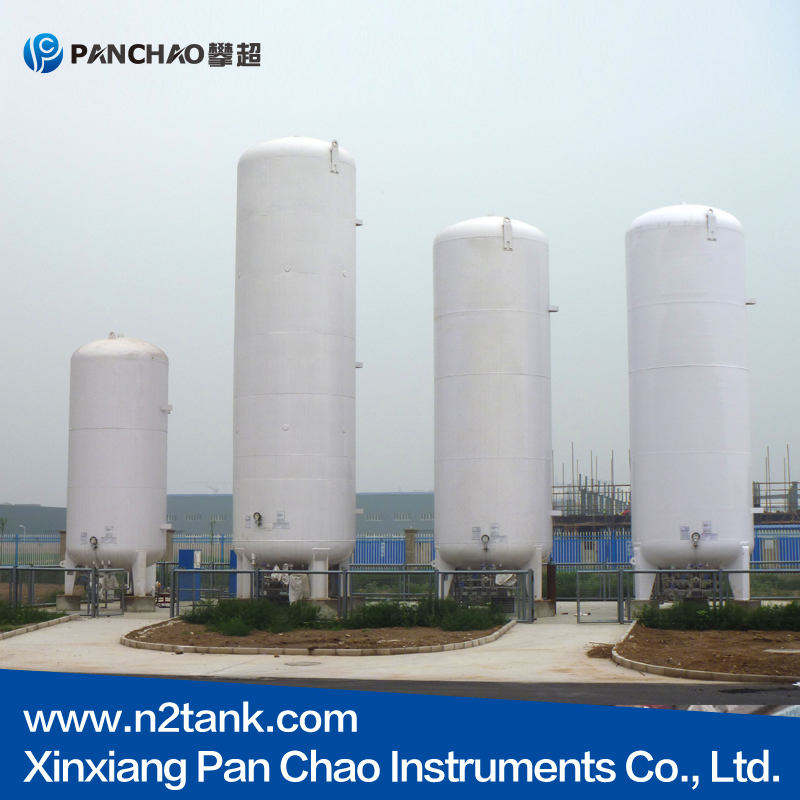
Cryogenic Liquid Tanks are available in vertical or horizonta...[more]
- 2vertical stainless steel pressu
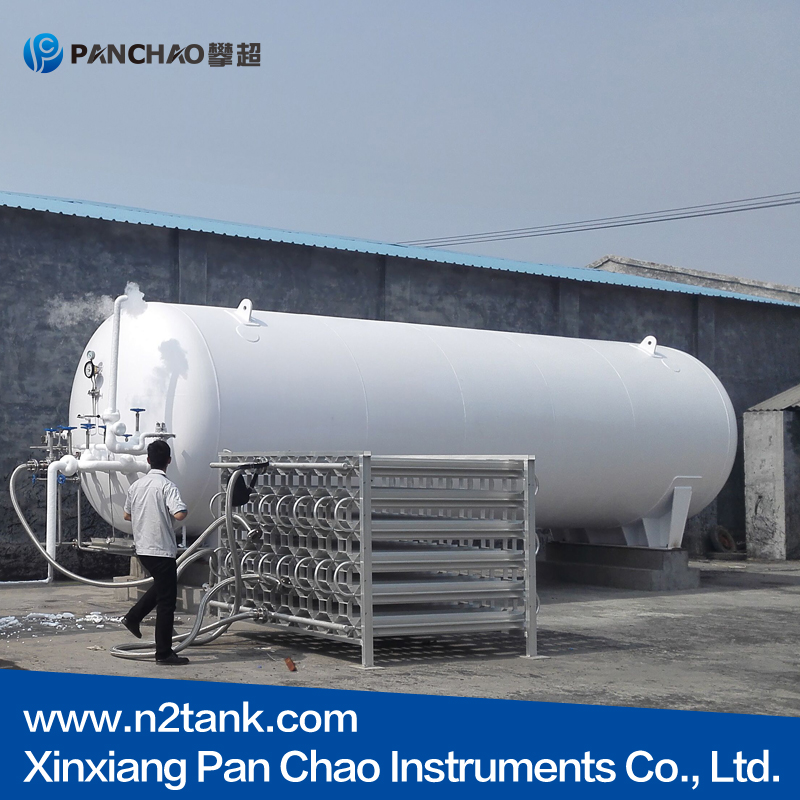
Cryogenic Liquid Tanks are available in vertical or horizonta...[more]
- 310 cubic meters cryogenic Liqui
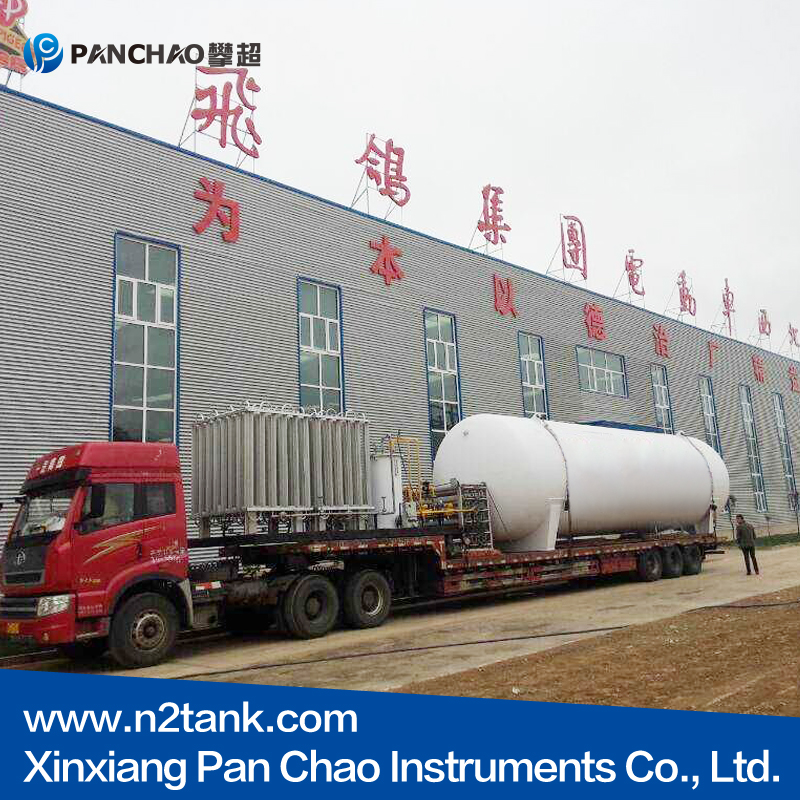
Cryogenic Liquid Tanks are available in vertical or horizonta...[more]
- 4GB150 pressure vessels cryogeni
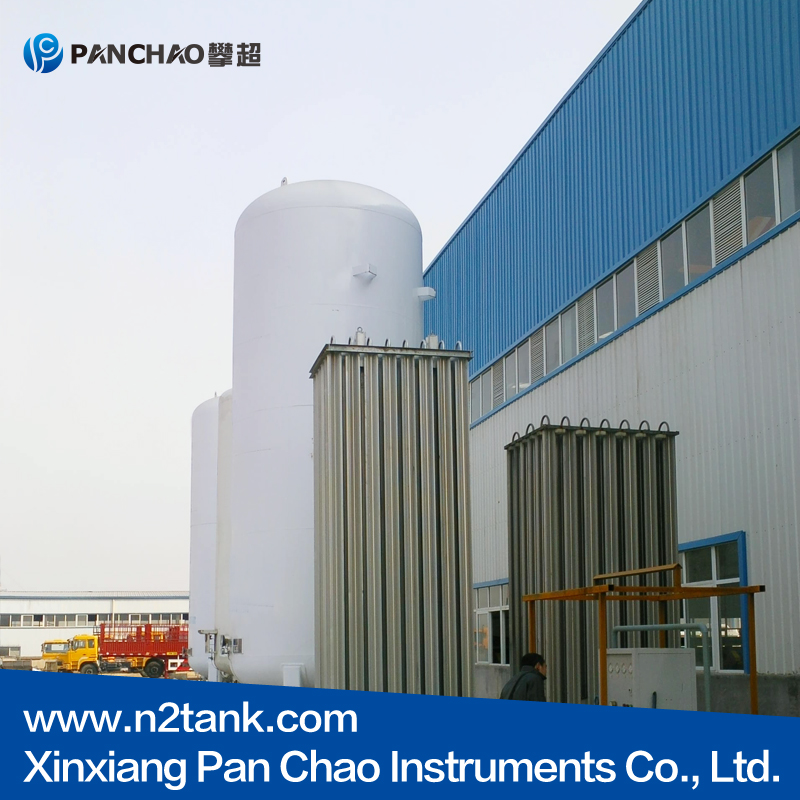
Cryogenic Liquid Tanks are available in vertical or horizonta...[more]
- 5New double Vertical cryogenic L
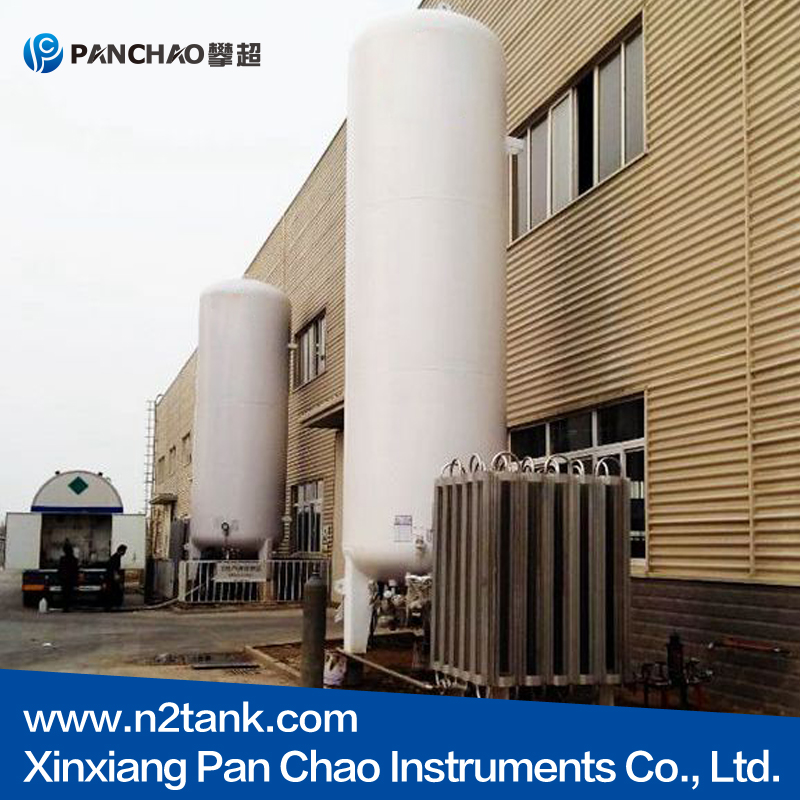
Cryogenic Liquid Tanks are available in vertical or horizonta...[more]
Rankings Of Similar Articles
- Liquid nitrogen tank operation training: an advanced guide fr
- Liquid Nitrogen Tank Maintenance Guide
- Liquid nitrogen tank transportation plan: safe and efficient,
- Hot sale thawing cup
- Storage of liquid nitrogen tank
- Application of liquid nitrogen tank in heat treatment field
- Liquid nitrogen tank for nitrogen station
- What is the liquid nitrogen tank made of?
- What is the liquid nitrogen tank made of?
- How to safely use liquid nitrogen tanks?
Latest Information
- Hot sale thawing cup
- Storage of liquid nitrogen tank
- Application of liquid nitrogen tank in heat treatment field
- Liquid nitrogen tank for nitrogen station
- What is the liquid nitrogen tank made of?
- What is the liquid nitrogen tank made of?
- How to safely use liquid nitrogen tanks?
- Hot selling YDZ liquid nitrogen tank
- Environmental protection and sustainability of liquid nitroge
- Hot selling liquid nitrogen tanks in March

